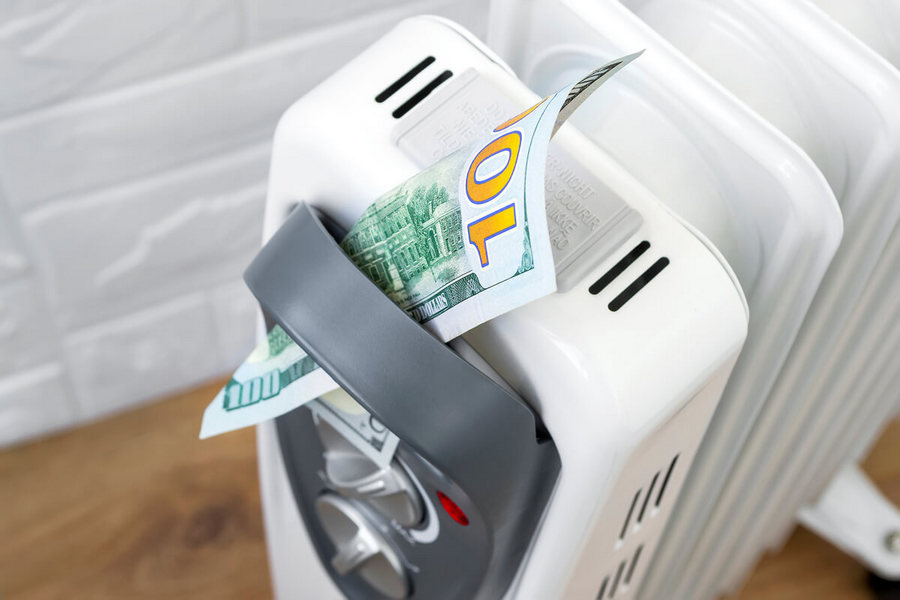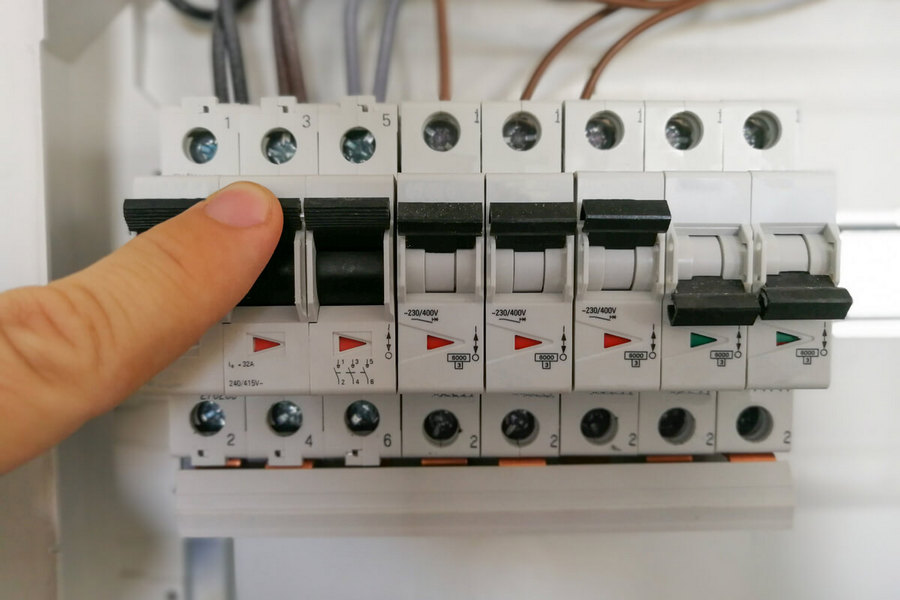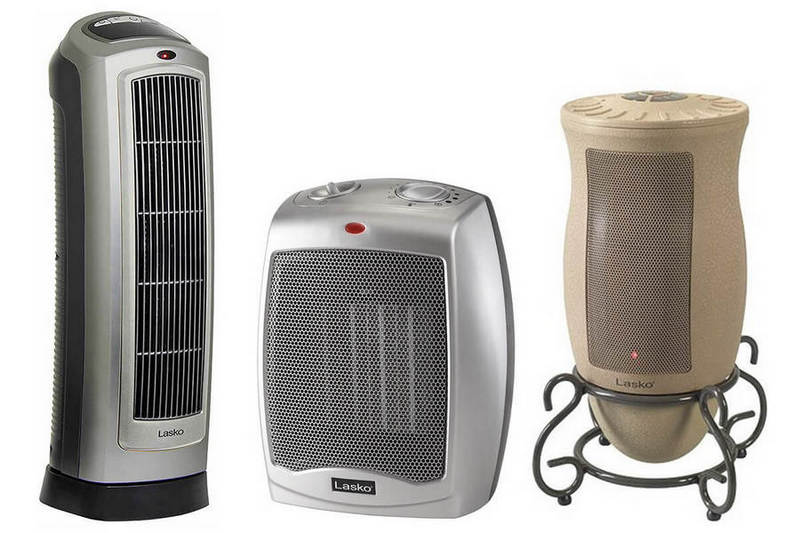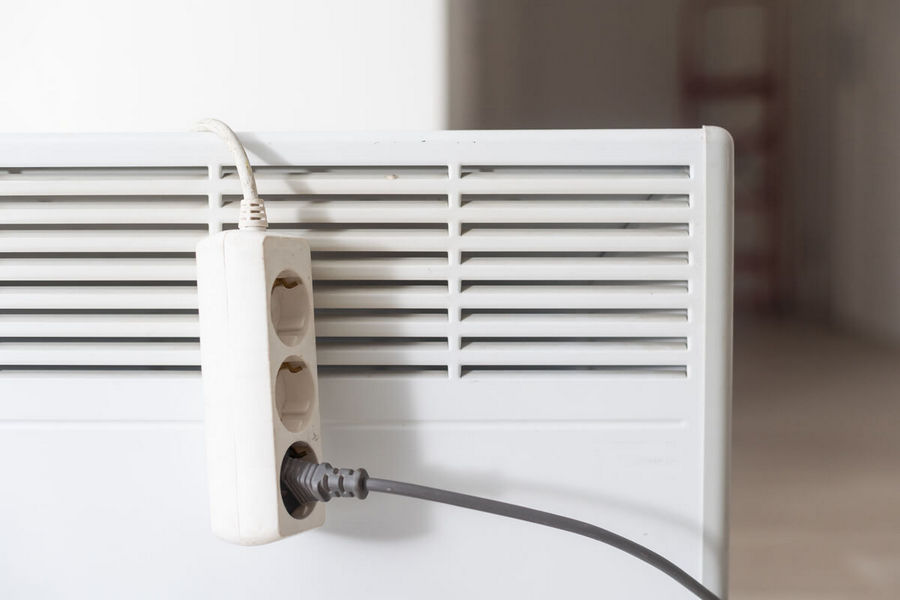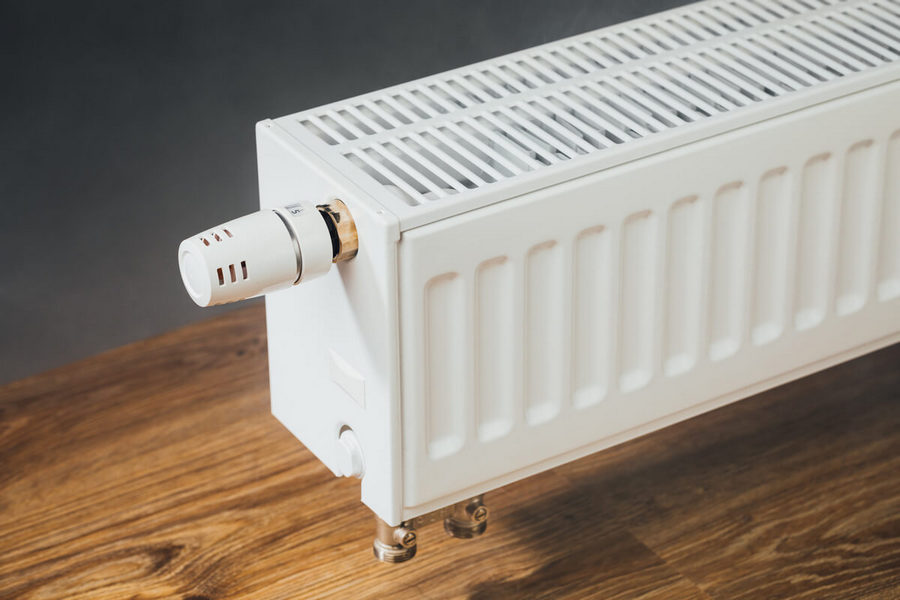Oil-filled heaters are an efficient and flexible solution to the underheated rooms in your homes. They are a relatively new and popular item in the market and run on electricity. The working principle for an oil-filled radiator heater is convection.
Their popularity is further increased due to their portable attribute such that you can move it around your house quickly. This allows you to use the heater to concentrate heat exactly where you need it.
How Does an Oil Heater Work?
Although its name might lead one to believe that the primary fuel in an oil-filled heater is oil, this is not the case. In reality, they rely on electricity. When you plug the heater and provide power to it, the electricity passes through an electric resistor placed inside.
Related: Oil Heater vs Electric Heater
The electric resistor is responsible for the heat energy. This heat energy, in turn, warms up the oil, which acts as a heat reservoir. This oil slowly releases the warmth over time.
In terms of workflow, the division of an oil-filled heater is into three parts:
- When the electricity that powers through the heater hits the resistor, it converts the current into heat. Typical heaters would release this heat in the form of air to heat the space. But in oil-filled heaters, the heat is used to warm the diathermic oil present in heater fins.
- When the diathermic oil is heated, it starts to circulate and spread inside the fins. As a result, the metal of the fins slowly warms up. When this metal comes in contact with the air, it warms up.
- At this point, the third part of the workflow comes in. The heater relies on convection and radiant heating to heat the air. As cool, ambient air passes through the hot fins of the heater, the air warms up. Once released, it pushes in more cool air, slowly warming up the entire room. This process continues until the area reaches the required room temperature.
Advantages and Disadvantages of Oil Filled Space Heaters
As with any other kind of heater, oil-filled heaters come with their own advantages and disadvantages.
Advantages
The most significant advantage of oil-filled heaters is their energy efficiency. The heaters utilize up to 99% of the electricity in the conversion into heat energy. This attribute makes them more efficient compared to flammable heaters.
Secondly, they use radiant heating as their principle. This process reduces the distribution of pollutants and germs that often come with fans in forced-air heaters. Hence, it is excellent for people with allergies and senior citizens.
Thirdly, the lack of fans makes the entire process noise-free. As a result, the ambiance is not just warm but also peaceful.
Fourthly, the option of an adjustable thermostat allows you to personalize the heater to your needs.
In addition to that, the heater comes with caster wheels. These wheels allow for easy portability of the heater around the house.
Disadvantages
Perhaps, the biggest drawback to oil-filled heaters is the slow heating. Since diathermic oils have a greater thermal mass, they continue releasing heat even after shutting the power. This property also means that it takes far longer to heat the diathermic oil in the first place. As a result, it takes a long time to heat a space.
Furthermore, since they work on convection, they are practically useless in huge rooms, especially if they are uninsulated. Investing in good insulation can improve heating from this device.
Another disadvantage is the high cost compared to other heaters. The heater owes its price to diathermic oil, which is a relatively expensive element.
Why Oil Filled Heaters Are Energy-Efficient?
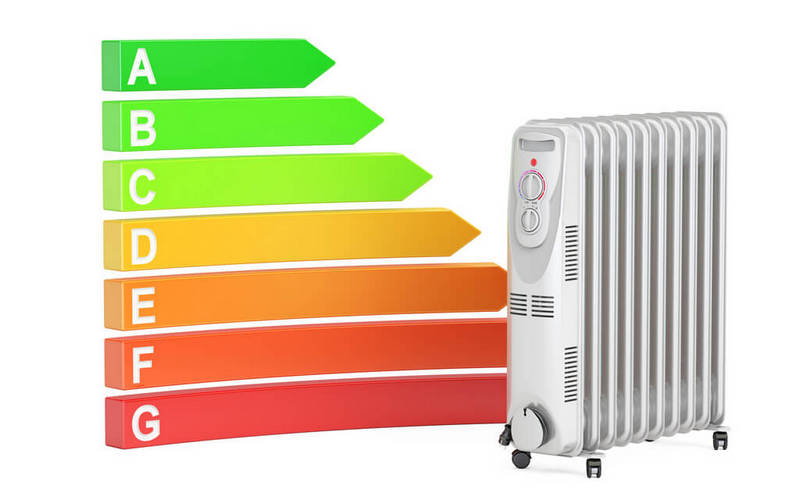
Oil-filled heaters are efficient because of their low power consumption, making them economical. They owe their energy efficiency to mainly two things.
1. Electric Resistor
The electric resistor is an excellent element since it converts up to 99% of electrical energy into heat energy. Unlike heaters that use flammable fuels, the resistor directly converts all the power into heat.
The heaters utilize a small amount of electricity to run the internal circuitry. But that power accounts for less than 1% of the entire electricity.
2. Diathermic Oil
The most significant contributor to the efficiency of the system is diathermic oil. The oil has a unique set of thermal properties, which include a large thermal mass and a high specific heat capacity. These properties allow the oil to absorb and store a large amount of heat energy.
As a result, the oil can slowly and evenly distribute the stored energy over an extensive period. This also means that the heater can continue the process of heating the room long after you have already switched it off.
Hence, the heater is much more efficient than a water-filled heater since water does not have the same thermal properties.
How Much Does an Oil Heater Cost to Run?
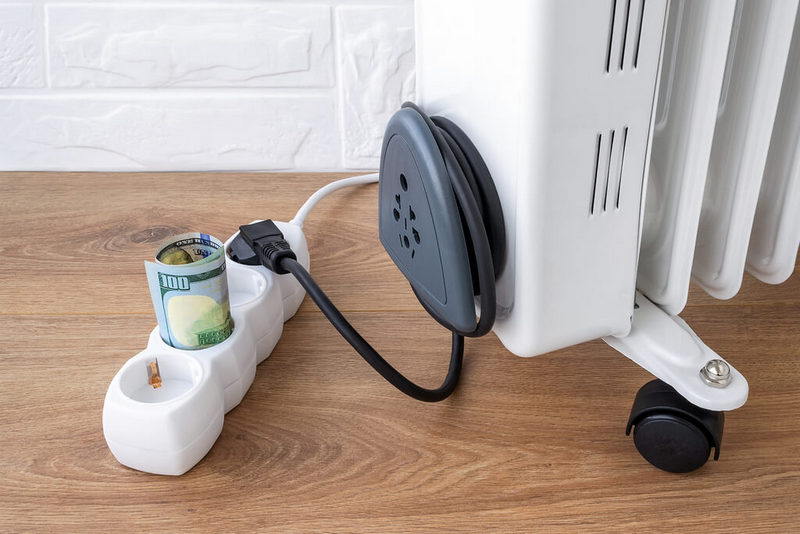
An oil-filled heater’s cost depends upon the wattage of the heater and the rate of electricity in your area. Your lifestyle, usage, size of the space, and climate are other factors that impact your heater utility bills.
Due to these reasons, calculating the exact cost of using an oil-filled heater is impossible. However, the wise use of an oil heater can decrease your expenses by a landslide.
One such way is to run the heater during the low electricity rate hours. Since it keeps providing heat even after it is switched off, you can utilize that property to avoid electricity usage during peak demand hours.
Another way you can reduce the cost is to use the correct wattage for the proper room size. If you use a low wattage heater in a big room, it will have to run on full energy the entire time.
When you use the correct wattage heater for its corresponding room size, the energy cost reduces. This is because the heater starts running on low energy after thoroughly heating the space.
Conclusion
Although oil-filled heaters may be costly and expensive, their high efficiency makes them a favorable choice among users. They come in innovative designs with portability and efficiency as a priority.
Their pollution-free and noise-free design make them a popular choice among people of all ages. So if you’re thinking of replacing your old heaters, oil-filled heaters might be an excellent choice!

